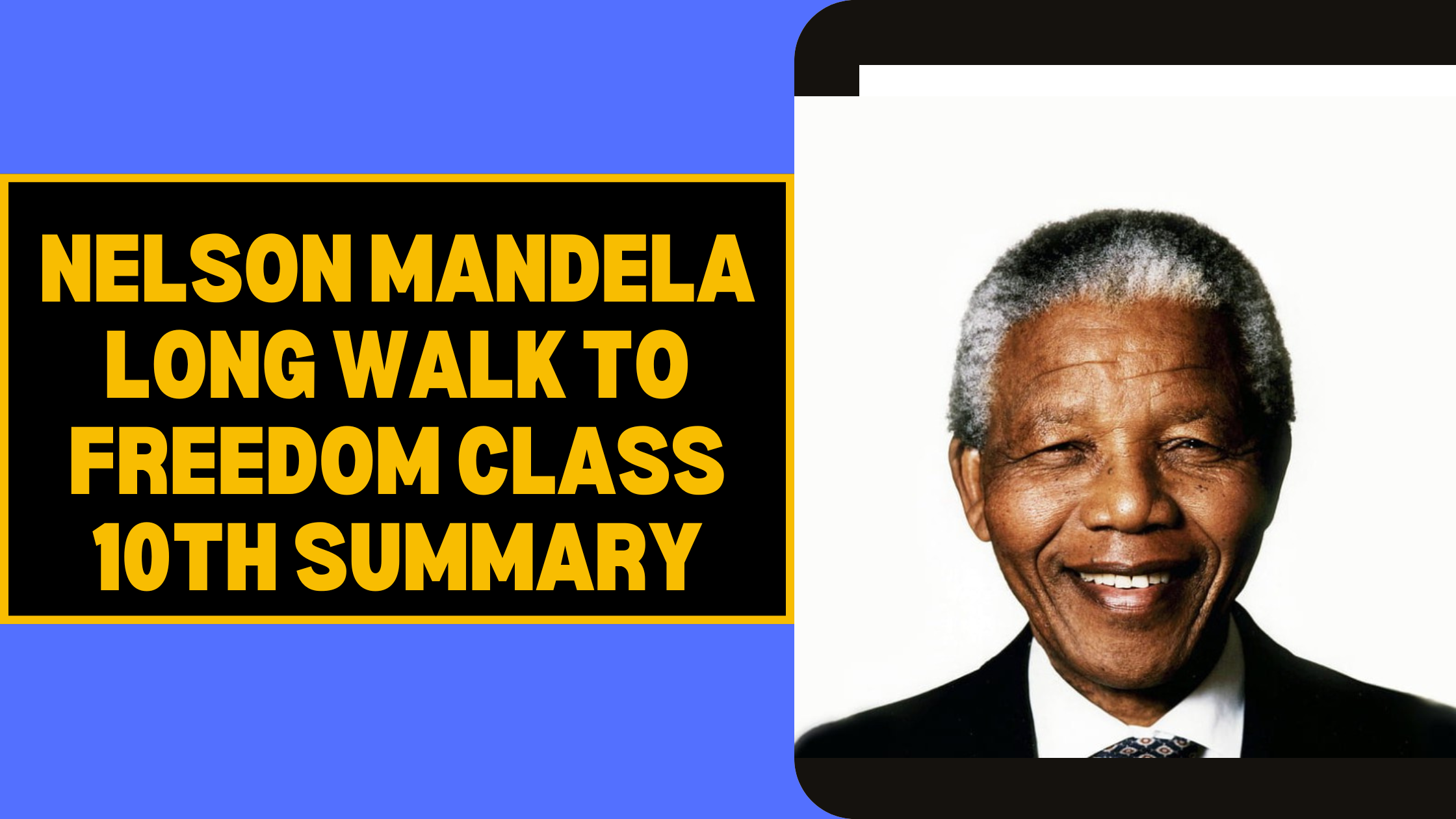The chapter deals with an autobiography of Nelson Rolihlahla Mandela, the first black South African president, an anti-apartheid revolutionary, and leader who served South Africa for 5years. We bring you the summary to get an idea about South African Gandhi.
It includes the inauguration ceremony and some extracts of his speeches and his struggles to get freedom.
You can also watch our video for a better explanation of the lesson of Nelson Mandela a Long Walk To Freedom.
Character sketch of Nelson Mandela
Nelson Mandela became the first black president of South Africa after the white dominance rule for about more than 300 years. It was the first non-racial government. In his speech, he mentioned that on this beautiful land we will never ever experience oppression.
He pays homage to many political figures who helped and struggled in the freedom fight. They all were common but full of valor and wisdom to fight against these odds and suppression from the dominance.
Further, he says that if a person can be taught to hate others, so he can also be taught to love and respect others. He also mentions two important duties that a person is obliged to do first for the family as a common individual and secondly for the motherland.
Nelson Mandela Long Walk To Freedom: Central idea
The chapter is an excerpt from the autobiography of Nelson Mandela who was born on 18 July. He became the first black president of South Africa after countering the anti-racism factors. In South Africa, a ruthless practice was going on named “ apartheid” was followed which is discrimination among races. Nelson Mandela struggles hard to achieve freedom from caste, color, race, age, gender, etc.
Let,s dive into the summary of the autobiography of the South-African Gandhi.
Nelson Mandela Long Walk To Freedom Class 10th Summary
The summary of Nelson Mandela describes the struggle for freedom of black people of South Africa. On 10th May 1994, he took an oath as South African president after more than 300 years of white rule. His party had won 252 votes in the history of South Africa.
Many political figures from several countries had attended the ceremony that took place in the amphitheater in Pretoria. He addressed them very respectfully and reassured them that there will be no place for discrimination and racism in the new South Africa. All will lead towards progress together. He vowed to establish democracy and treat all of them with dignity and equality.
The day was the allegory for him as the people sang two national anthems- Nkosi Sikelel-iAfrika and the black sang ‘Die stem’,. These events going through reminded him of the pain he faced from this suppression and domination. This all gave rise to inhumane and miserable conditions of the people. He believed that no person should allow detesting others based on caste, color, or creed.
The apartheid policy had produced great freedom fighters like Oliver Tambos, Walter Sisulus, Chief Luthuli’s, etc. the country was rich in resources and the greatest resource of all was its people.
From the learned courage and took a risk, gone through torture and learned that courage was not the absence of fear but the victory over it. Man’s natural goodness is that he can see kindness and love in the prison itself when pushed to the walls, he felt melted and see the good heart in the guards.
According to his vision, if a person can be taught to hate, he can surely be taught to love as well. He mentioned that a person becomes bold when he can control his fears. He mentioned two major duties of every man i.e. towards his family and towards his country and community. After he stated, that black people were not able to perform their duties because of apartheid. When Mandela crossed her young age, he realized that if they did not raise their voice against oppression the black-skinned people have become slaves under the dominance of the white ones.
Black-skinned people were living under the tyranny of white rule. He further told that the oppressor is also bound by prison as it snatches the other’s freedom. Both of them are denied of their humanity.
Conclusion
To conclude we have learned that, brave men are not those who feel afraid but they are ready to conquer and overcome their fear. Mandela told them to follow their own obligations and focus on the country’s welfare.

